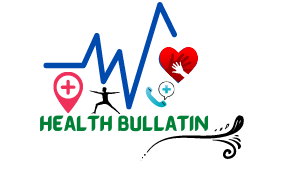Many misconceptions about the nursing profession have persisted even to this very today. One of them has undoubtedly been gender, and the assumption that it is a woman’s job. However, it would be fair to say that one longstanding perception of nurses is a hundred percent correct – nurses work hard. Ever since the old days when we referred to them as “sisters”, there has always been a great deal of respect for the work that nurses do to aid the sick and dying.
In the modern era, nothing about this has changed. Being a nurse is still a job that requires a great deal of commitment and devotion to the calling. Health Jobs Nationwide, a medical jobs board offering nurse practitioner jobs, stress that there are few upcoming nurses-in-training that are not aware of the commitment involved. Whatever problems the healthcare system in the U.S. is currently experiencing, an ignorance about the demanding work involved certainly is not one of them.
The Physical Toll of Working as A Nurse
Nurses can be expected to work long hours, and those hours can be either during the daytime or at night. The job is also well known for being highly stressful, which is all related to how important a nurse’s work is. Certainly, there are few other jobs which involve such proximity to life and death.
Furthermore, whereas doctors typically work with patients during consultations and operations – i.e., in relatively short, allotted times – nurses are there to provide ongoing care, to monitor and track a patient’s progress. This means they spend a lot more time with patients – the sick and the dying – than doctors do.
Something about nurse work, however, which is very often neglected is the risk of physical injury or strain. Nurses are typically on their feet for their whole shift, and there is a lot of running around exceptionally large buildings – which hospitals typically are – involved. By far, the most common cause of physical injuries among nurses is overexertion, which can manifest in countless ways. Nevertheless, nurses are at greater risk of falls, needle pricks, and even assault as well.
Preventing Nursing Work Injuries
One of the most important things to bear in mind as a nurse is that, even though the job is entirely about taking care of others, you really do need to also take care of yourself. Here follows some useful tips:
Use Your Body Sensibly
There is a lot of lifting involved in being a nurse – from lifting patients to moving heavy equipment and lifting beds. It is vital that this is done with the proper body mechanics. Always lift close to your mid-section and bend your knees before you lift.
Get Help
Sometimes, it is a not a one-person job. When faced with a physical task, be sure to enlist the help of others to do it effectively and safely. A good working environment for nurses always involves a good deal of teamwork.
Designate a Lift Team
This is one for hospital managers or team leaders. Having a designated lift team made up of the most physically capable recruits can be invaluable when transferring patients.
Do Not Tolerate Assault
You are there to do everything for your patients, but the line has to be drawn at physical violence. When this appears to be imminent or after it has occurred, you are well within your rights to back off and contact security or law enforcement.
Much emphasis is placed on things like work-life balance and mental health when it comes to the welfare of nurses. But a nurse’s physical health is something that should never be neglected either.

